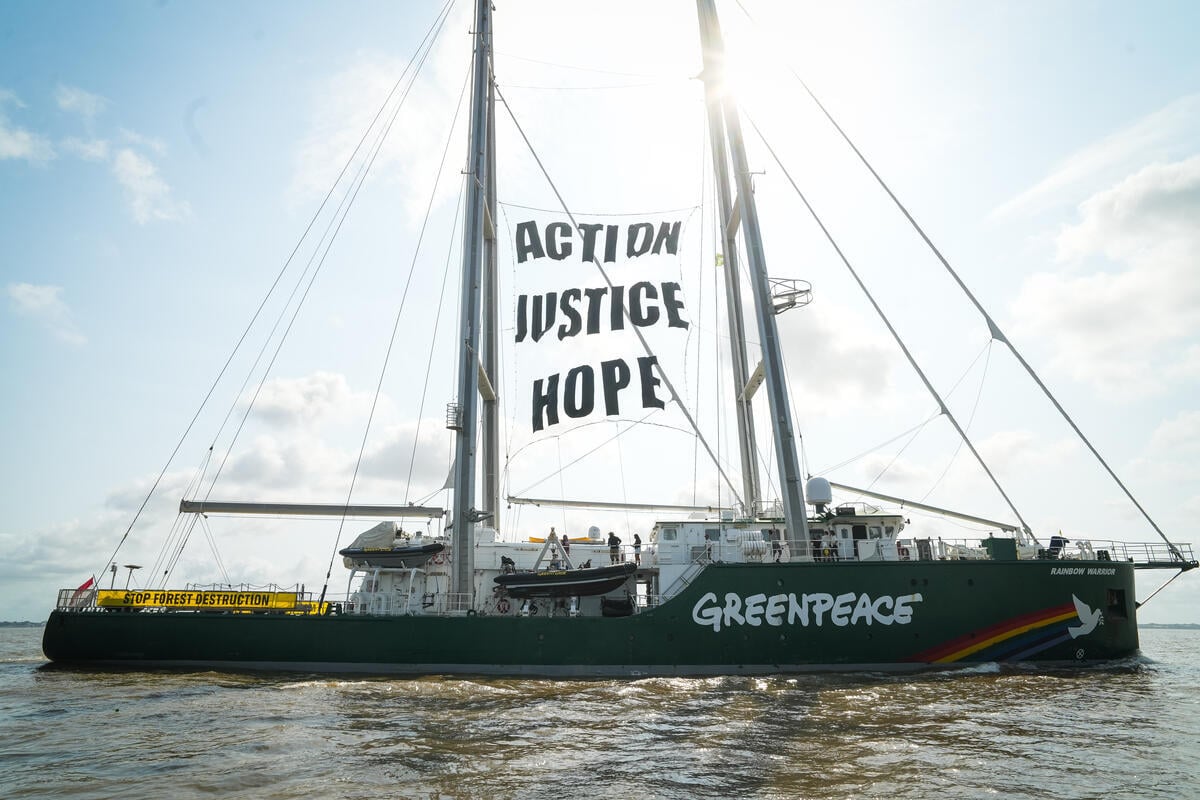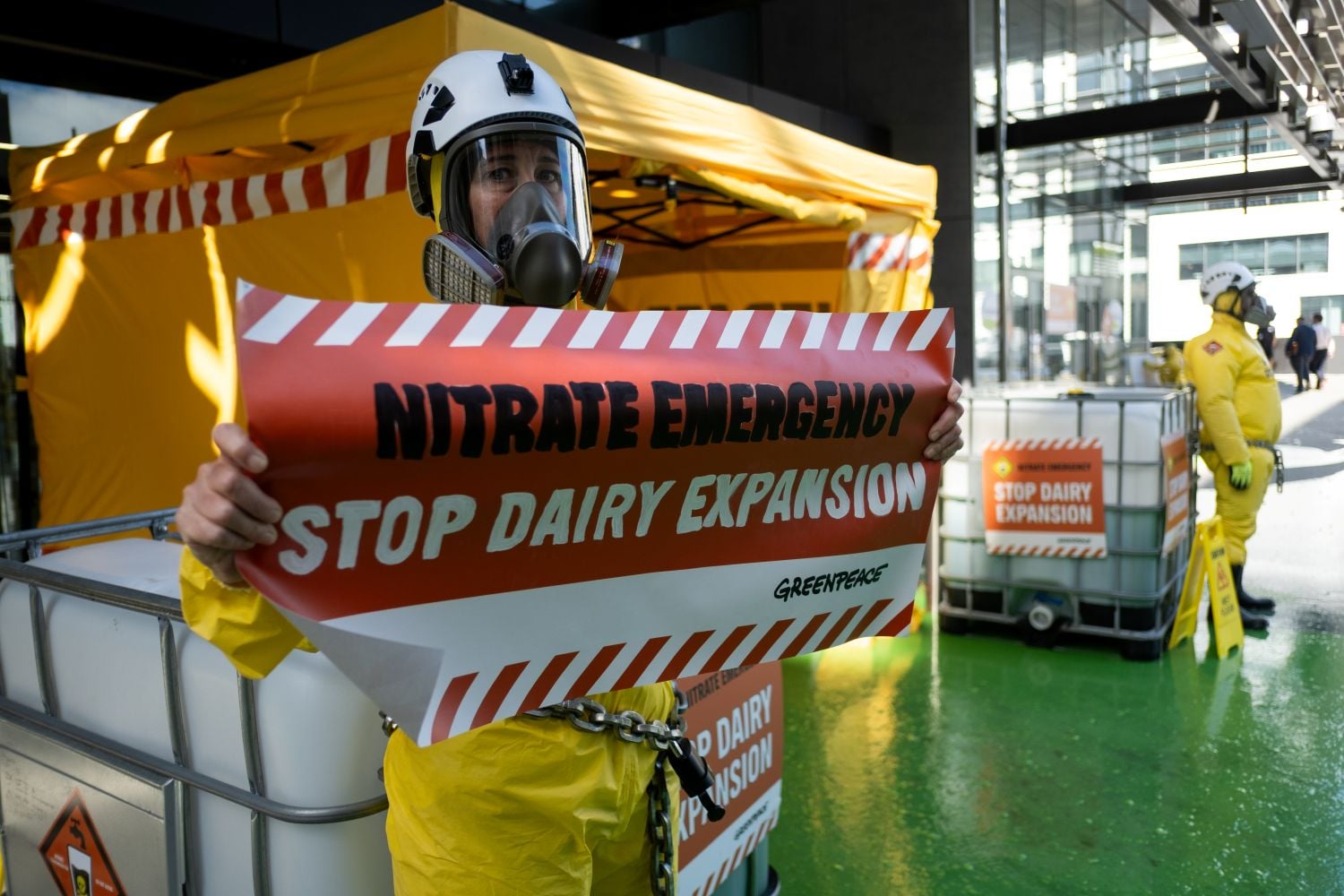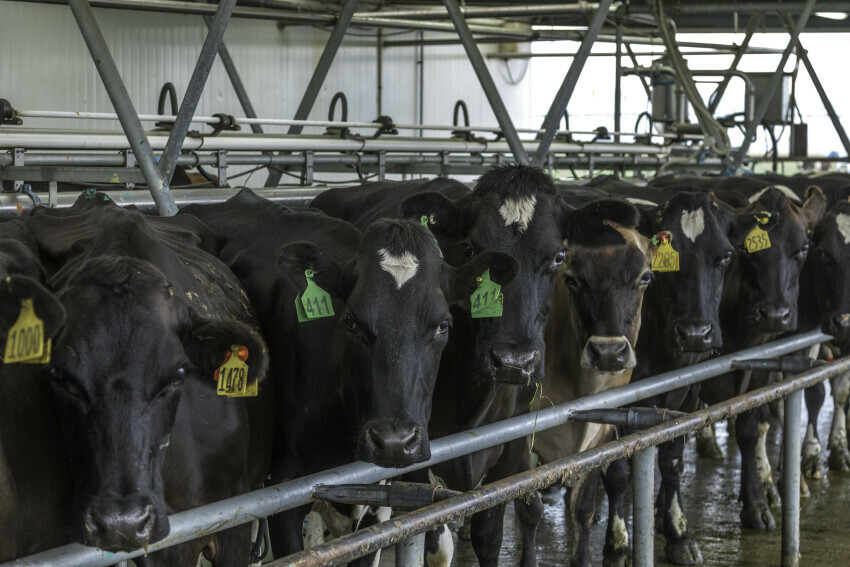Curious what Canterbury’s regional council candidates really think about freshwater protections? Well we’ve got you covered with our Environment Canterbury election scorecard.
We sent a survey to all the candidates, dug into their voting history, and crunched the numbers. Now you can find out who are the biggest champions – and opponents – of freshwater protection in Canterbury. And we’ve got the receipts to prove it!
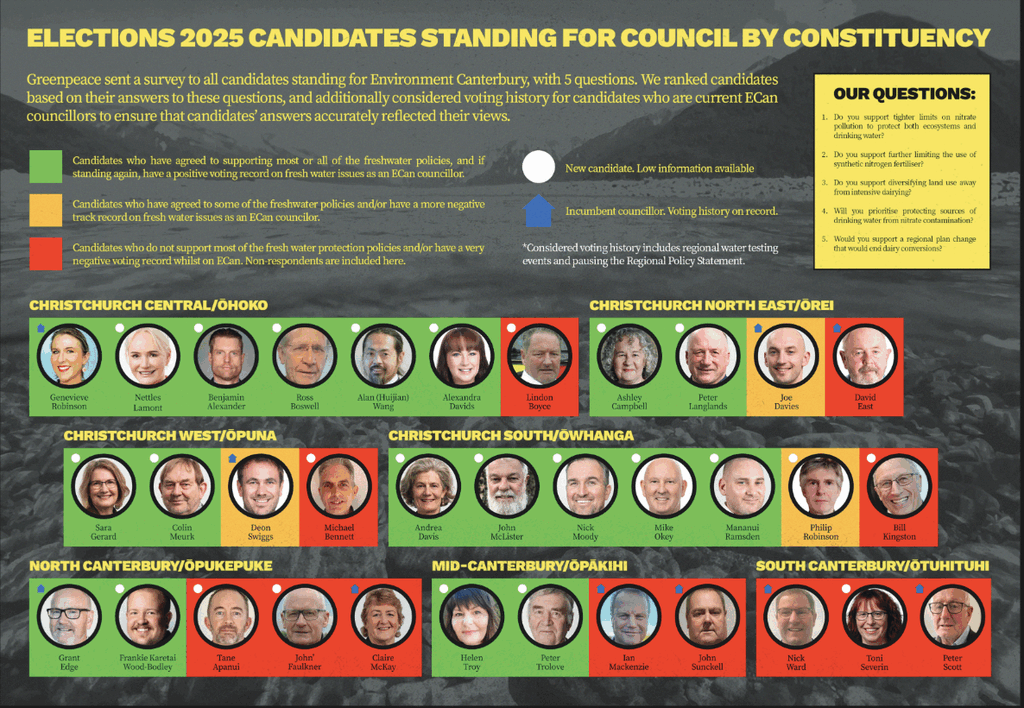
Here you’ll find exactly how we got these results, plus a breakdown of the policies each candidate supports—or refuses to support.
Greenpeace’s Freshwater Survey
Greenpeace sent a survey to all candidates standing in the upcoming local elections for Environment Canterbury. The survey asked five questions about freshwater protection, outlining actions we think prospective councillors should commit to if they are serious about looking after Canterbury’s lakes, rivers, and drinking water.
The questions we asked candidates were as follows:
- Do you support tighter limits on nitrate pollution to protect both ecosystems and drinking water?
- Do you support further limiting the use of synthetic nitrogen fertiliser?
- Do you support diversifying land use away from intensive dairying?
- Will you prioritise protecting sources of drinking water from nitrate contamination?
- Would you support a regional plan change that would end dairy conversions?
However, actions speak louder than words. We want to empower voters with information that will help inform them when deciding how to cast their vote. Several candidates standing for regional council are already regional councillors, so we also considered their votes on two key issues. More information on this can be found in the ‘Voting History‘ section further down.
Below you can see a breakdown of how each candidate answered the five questions, their score based on voting history and their overall score when it comes to being a freshwater protection champion.
Candidate answers:
Candidates with an asterisk * are incumbent councilors whose score has been adjusted based on their voting history.
| Name | Nitrate pollution limits | Synthetic fertiliser limits | Diversify land use | Protect drinking water sources | End dairy conversion |
|---|---|---|---|---|---|
| Genevieve Robinson* (5) | Yes | Yes | Yes | Yes | Yes |
| Nettles Lamont (5) | Yes | Yes | Yes | Yes | Yes |
| Benjamin Alexander (5) | Yes | Yes | Yes | Yes | Yes |
| Ross Boswell (5) | Yes | Yes | Yes | Yes | Yes |
| Alan Wang (4) | Yes | Yes | Yes | Yes | No |
| Lindon Boyce (1) | – | No | – | Yes | – |
| Alexandra Davids (4) | Yes | Yes | Yes | Yes | – |
| Joe Davies* (3) | Yes | Yes | Yes | Yes | Yes |
| Ashley Campbell (5) | Yes | Yes | Yes | Yes | Yes |
| Peter Langlands (5) | Yes | Yes | Yes | Yes | Yes |
| David East* (1) | Yes | – | Yes | Yes | – |
| Andrea Davis (5) | Yes | Yes | Yes | Yes | Yes |
| Nick Moody (5) | Yes | Yes | Yes | Yes | Yes |
| Mike Okey (4) | Yes | Yes | Yes | Yes | No |
| Philip Robinson (3) | Yes | Yes | – | Yes | – |
| Bill Kingston (2) | No | No | Yes | Yes | No |
| Mananui Ramsden (4) | Yes | Yes | Yes | Yes | No |
| John McLister (5) | Yes | Yes | Yes | Yes | Yes |
| Deon Swiggs* (3) | Yes | Yes | Yes | Yes | Yes |
| Sara Gerard (4) | Yes | Yes | Yes | Yes | – |
| Colin Meurk (4) | Yes | Yes | Yes | Yes | – |
| Michael Bennett (0) | – | – | – | – | – |
| Peter Trolove (5) | Yes | Yes | Yes | Yes | Yes |
| Helen Troy (5) | Yes | Yes | Yes | Yes | Yes |
| John Sunckell* (1) | Yes | No | Yes | Yes | No |
| Ian Mackenzie* (-2) | – | – | – | – | – |
| Grant Edge* (5) | Yes | Yes | Yes | Yes | Yes |
| Frankie Karetai Wood-Bodley (5) | Yes | Yes | Yes | Yes | Yes |
| Claire McKay* (-2) | – | – | – | – | – |
| Tane Apanui (0) | – | – | – | – | – |
| John Faulkner (0) | – | – | – | – | – |
| Nick Ward* (2) | Yes | No | Yes | Yes | Yes |
| Peter Scott* (-1) | – | – | – | – | – |
| Toni Severin (0) | – | – | – | – | – |
Voting history considered for the Environment Canterbury election scorecard
We also assessed each current sitting councillor who is standing for reelection based on their voting history, to ensure accountability and to fact-check their answers to the questions. We assessed councillors based on two key votes.
- Vote 1: Motion to seek a report on potential ECan-run region-wide water testing events. We gave councillors who voted for this proposal 0 additional points, while we scored councillors who voted against this proposal at -1.
- Vote 2: Motion to pause development of the Canterbury Regional Policy Statement. We gave councillors who voted against the motion 0 additional points, while we scored councillors who voted in favour at -1.
Here’s a breakdown of how sitting councillors standing for reelection voted on these two motions:
| Councillor and score adjustment | Motion seeking a report on introducing region-wide water testing events for private well owners | Motion to pause development of the Canterbury Regional Policy Statement until January 2026 |
|---|---|---|
| Genevieve Robinson (0) | For | Against |
| Joe Davies (-2) | Against | For |
| David East (-2) | Against | For |
| Deon Swiggs (-2) | Against | For |
| John Sunckell (-2) | Against | For |
| Ian Mackenzie (-2) | Against | For |
| Grant Edge (0) | For | Against |
| Claire McKay (-2) | Against | For |
| Nick Ward (-2) | Against | For |
| Peter Scott (-1) | For | For |
Why these two votes?
These are two of the most critical votes on freshwater protections that have happened in the last year around the ECan table.
On 13 November 2024, Councilor Vicky Southworth tabled a motion at the Regional Delivery Committee to request a report from ECan staff on the viability of running region-wide nitrate testing events for private well owners. The motion passed with a slim majority.
Nitrate testing for private well owners is important because it’s the only way for them to find out what’s in their water, and if it’s safe to drink. Private well owners are usually not responsible for the contamination of their drinking water – yet currently, the responsibility and costs of testing water and dealing with contamination fall on them.
In 2024, the Luxon Government changed the law to block regional councils from notifying Freshwater Planning Instruments until the end of 2025. The Government did this to stop regional councils from implementing regional freshwater protections while the Government rolled back national protections.
On the 27th November 2024, a majority of ECan councillors went one step further. They voted to pause the development of Canterbury’s Regional Policy Statement – which is a key planning document that sets objectives and policies for managing Canterbury’s natural environment – including fresh water.
They didn’t have to do this. While Luxon had blocked ECan from notifying the Policy Statement, ECan staff could have continued its development.
Those same ECan staff advised the council that pausing development risked losing momentum and would delay any benefits of a new Policy Statement.
At a time when Canterbury is in the midst of a water pollution crisis, delaying plans to take action on protecting fresh water is unacceptable. For that reason, councillors who voted to delay the Policy Statement development have been marked down on our Environment Canterbury election scorecard.
Get involved!
Is your councillor in the red? Want to help us shift them to becoming a freshwater champion? Join the campaign and call for clean drinking water now!
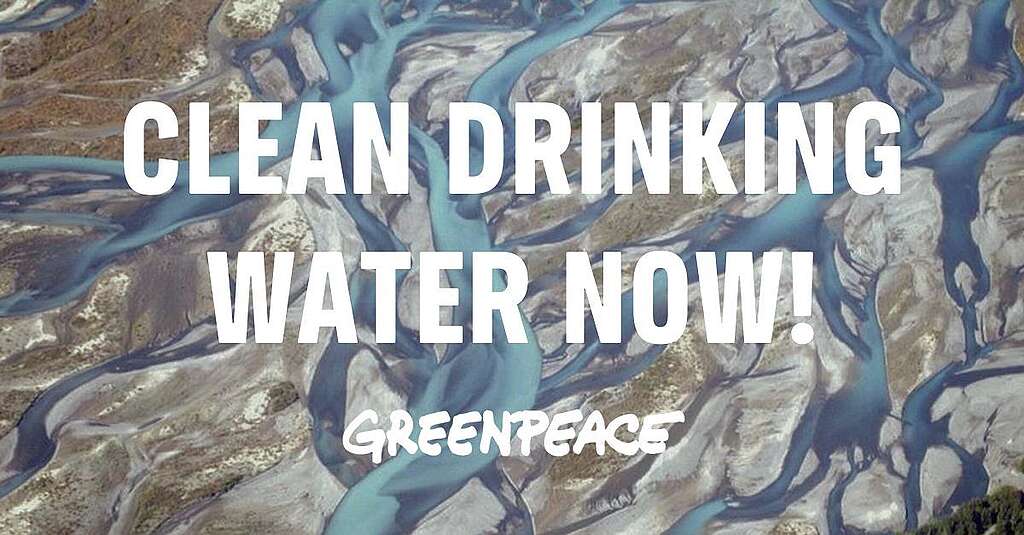
Join us in calling on Environment Canterbury to commit to enduring freshwater protections that ensure safe drinking water and swimmable rivers for all.
Take Action
